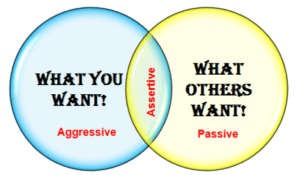Contents
- 1 What Is Borderline Sociopath Or Antisocial Personality Disorder?
- 2 Symptoms of Borderline Sociopath
- 3 Causes Of Borderline Sociopath
- 4 Effects Of Borderline Sociopath
- 5 Relationship With A Sociopath
- 6 What Not To Say To A Borderline Sociopath?
- 7 How To Cope With Antisocial Personality Disorder
- 8 Treatment Of borderline sociopath

A borderline sociopath is a person with a personality disorder that is characterized by severe emotional instability and significant problems in interpersonal relationships. People with borderline sociopathy may have symptoms such as severe anxiety, chronic feelings of emptiness, depression, and impulsive behavior.
Symptoms of Borderline Sociopath
The signs of being around someone who may have borderline sociopathy are very clear. It is important to note that people who have this disorder may not realize they have it and may try to deny any suggestions you make. Some common symptoms in this disorder include:
Lack Of Empathy And Guilt
People with antisocial personality disorder often seem unable to tolerate the distress they cause others, such as guilt or shame. They may justify their behavior or blame others even when it is illogical to do so.
Intense And Unstable Emotions

People with this disorder may often feel anger, yet their emotional reactions can quickly change to anxiety, depression, or despair. Their emotional state rarely seems stable and they may be prone to frequent mood swings or outbursts of rage or anger that seem inappropriate in the situation.
Impulsive Behavior
The emotions of a person with antisocial personality disorder can shift rapidly. They may go from a calm state to intense anger, panic attacks, or depression within a few minutes. Their impulsive nature often makes it difficult for them to control their impulses, relationships, or finances.
Repeated Violations Of The Law
A person with an antisocial personality disorder may repeatedly get in trouble at work or school, violate traffic laws, and have difficulties with the police. They tend to show a disregard for the rights of others.
Lack Of Responsibility
People who suffer from this disorder often do not hold down a steady job or pay their bills. They may avoid working or doing anything that requires a great deal of effort. It may be difficult for the person to form relationships with people who are not immediate family members because they can’t seem to follow through on promises and obligations.
Intense Rage

Someone with borderline sociopathy may also experience intense rage that is linked to events from their past as well as intense mood swings where they can go between different emotions quickly and unexpectedly. A borderliner will also have problems regulating their emotions, which can result in sudden outbursts where they may yell or scream. They often feel that these things are happening to them randomly even when there is a reason behind it.
Superficial Relationships
The main way to tell if you are dealing with someone who has borderline sociopathy is the fact that their relationships tend to be very superficial and they often jump from one relationship to another. If you notice that this is the case with someone in your life, it may be worth talking to them about what you’ve noticed. Don’t make accusations, describe it for them describe how they are behaving differently in relationships, and ask them if this sounds like something familiar to them.
Reckless Behavior
Another sign of borderline sociopathy is reckless behavior. People with this disorder may show a pattern of reckless behavior such as driving recklessly or having unprotected sex. This often feels good to them because it allows them to feel more alive, but they can hurt others in these actions. Someone with borderline sociopathy does not have the same feelings of anxiety and dread that most people do. This is because they live their life as if everything is a game and they can turn on or off certain emotions at will.
Power Over Others
 Another sign of borderline sociopathy is that people with this disorder often feel out of control and find ways to assert power over others. This may be through manipulation, intimidation, or bullying tactics. They have no problem taking advantage of others when they are in a state of panic or despair. People with borderline sociopathy often think that mind-reading is real and always assume that people are talking about them when they are not. This can result in intense paranoia where they believe everyone hates them or feel like the world is against them.
Another sign of borderline sociopathy is that people with this disorder often feel out of control and find ways to assert power over others. This may be through manipulation, intimidation, or bullying tactics. They have no problem taking advantage of others when they are in a state of panic or despair. People with borderline sociopathy often think that mind-reading is real and always assume that people are talking about them when they are not. This can result in intense paranoia where they believe everyone hates them or feel like the world is against them.
Symptoms At A Young Age
People who have an antisocial personality disorder as children or adolescents may engage in serious criminal behavior. They may commit crimes such as arson, assault, and theft; steal from their parents or other adults; and destroy other people’s property.
The symptoms often include intense feelings of abandonment, which they feel can result from a past or future event or even something someone may say to them.
Causes Of Borderline Sociopath

There is no single cause of borderline sociopathy. However, research suggests that a combination of genetic and environmental factors may play a role.
Genetic factors may increase the risk of developing this disorder. Studies have shown that people with close relatives who have antisocial personality disorder are more likely to develop the disorder themselves.
Environmental factors may also contribute to the development of this disorder. People who experience childhood abuse or neglect, or who live in chaotic or violent homes, are more likely to develop borderline sociopathy.
Effects Of Borderline Sociopath
The problem is that this form of emotional abuse is often seen as a “relationship issue” when it’s actually more like emotional enslavement. When you find yourself feeling afraid of your partner or questioning your own judgment, think about how their behavior is affecting your life-not just during the relationship but after you’ve broken up as well. It’s understandable to want to give them another chance, but it takes two people to form a healthy relationship and if one person doesn’t have the ability to respect you, it’s probably time to cut them loose.
No one wants to think they are being abused in a relationship, but there are many telltale signs that you are being manipulated. The more someone tries to convince you that they are the victim, the more likely it is that they are trying to pull the wool over your eyes. It’s never a good sign when you feel as if you’re walking on eggshells. A sociopath will make their victims constantly question themselves, their actions, and what they might have done to cause the abuse.
Relationship With A Sociopath
 A relationship with a sociopath can feel like an emotional roller-coaster. Because they will always have a new crisis on their hands. If your partner is always experiencing some huge drama, it’s time to rethink the relationship. Because this is not a sign of a healthy connection. Ultimately they will make you feel as if you are going crazy and that everyone else is out to get them.
A relationship with a sociopath can feel like an emotional roller-coaster. Because they will always have a new crisis on their hands. If your partner is always experiencing some huge drama, it’s time to rethink the relationship. Because this is not a sign of a healthy connection. Ultimately they will make you feel as if you are going crazy and that everyone else is out to get them.
Breakups are difficult under any circumstances. But when dealing with a sociopath, it’s even harder. Because you will begin to question your own feelings about them. And this is exactly how they want you to feel. When you are in love, it can be easy to get so caught up in the “honeymoon” phase that you are blinded to certain facts about your partner. We all want to think the best of everyone. But it is important to ask yourself if this person is really deserving of your trust.
Never doubt yourself or let someone convince you that you’re unhinged simply for believing in your own perceptions. If you feel that something is not right, it’s because you’ve been paying attention to how this person has been behaving and their actions toward you. It takes a skilled sociopath to make their victims question themselves to the point where they don’t trust anything about what they know or feel anymore.
What Not To Say To A Borderline Sociopath?
It’s not always easy to spot a borderline sociopath, and that you might be dealing with one in your own life. Even if they don’t exhibit the more obvious traits, and instead show signs of manipulation and emotional abuse-you may still be dealing with a sociopath.
The following is a list of nine things you should never say to someone who you suspect is a sociopath:
- “I just want you to be happy”
- ” I think this is for the best…”
- “You’re really not good at relationships…”
- “Maybe we should see other people…”
- “It’s all your fault, why can’t you ever do anything right?”
- “I only stay with you because I love you…”
A sociopath will point out everything that is wrong with the victim’s life and twist things. So that they are always to blame for relationship problems. They thrive on being able to convince people that they are not who they appear to be. And that they are actually the ones suffering in the relationship. The victim will feel uneasy and may even begin questioning their own sanity. Meanwhile, the sociopath is manipulating them into becoming increasingly dependent on them.

If you are living or working with someone who has an antisocial personality disorder. It can be very difficult to cope with. Here are some tips for how to deal with this situation:
Seek help
It can be very helpful to talk to someone who understands what you’re going through. There are also support groups available for people who are dealing with a loved one who has an antisocial personality disorder.
Set boundaries
It is important to create boundaries with someone who has this disorder in order to protect yourself from their behavior. Try not to neglect yourself or fall into unhealthy patterns because of the person with an antisocial personality disorder.
Don’t take their behavior personally
The thing that makes it difficult to cope with someone who has an antisocial personality disorder is that their behavior can be hurtful. Don’t give up your friends and family. It is important to spend time with people who support you and love you. So don’t let antisocial personality disorder steal those relationships away from you.
Be Assertive about your needs
 Don’t hesitate to ask for what you need from people, including the person with an antisocial personality disorder. Just make sure that you are clear and firm about these requests. So there is no confusion or room for manipulation.
Don’t hesitate to ask for what you need from people, including the person with an antisocial personality disorder. Just make sure that you are clear and firm about these requests. So there is no confusion or room for manipulation.
These tips can be helpful in coping with an antisocial personality disorder. But it is important to realize that the person who has this disorder will not stop having it. Because you’ve started acting differently. Also, make sure that you are protecting yourself before you take any steps towards coping with this disorder.
Treatment Of borderline sociopath
A borderline sociopath is a difficult condition to treat. Once someone has been diagnosed with the disorder, psychotherapy and medication may be helpful. The person may have to stay in treatment for many years or even for their entire life. In some cases, borderline sociopathy requires intensive treatment involving hospitalization and daily therapy sessions.
Therapy

People with borderline sociopathy may require a combination of therapies, including cognitive-behavioral therapy and dialectical behavior therapy. Cognitive-behavioral therapy can help improve someone’s ability to manage their emotions. Usually by changing the way they think about certain situations or events that trigger their symptoms of anger, depression, or anxiety. Dialectical behavior therapy helps reduce self-destructive behaviors and impulsive thoughts and teaches the person how to regulate their emotions.
Medication
Doctors may prescribe mood stabilizers or antidepressants for people who have symptoms of depression, anxiety, anger, or irritability associated with borderline sociopathy. They may also prescribe antipsychotic medications. Such as haloperidol (Haldol) or risperidone (Risperdal) to treat people who have psychotic symptoms, such as hallucinations or delusions.


